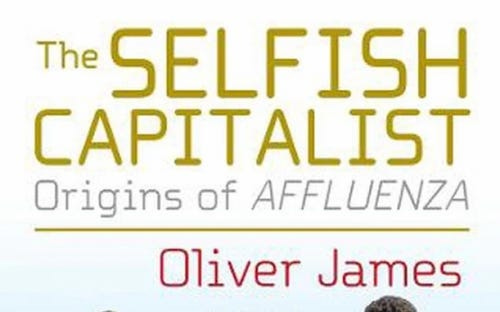(This is a new version as we felt the urge to add crucial data)
Here we go for another round, but before commencing, we will repeat it again: Now and more than ever, it is time for world citizens to learn from history!
To set the tone of this blog, we have to start with The British Medical Journal and its review of the following book., which investigates the ‘unholy alliance between drug companies and establishment psychiatry. Instead of paraphrasing, we prefer to copy and paste: In contrast to what many of us assume, the idea that mental illnesses are caused by an imbalance of neurochemicals and can only be treated by using psychotropics like antidepressants, or mood stabilisers or antipsychotics, is a theory that has never been proven. Neither depression nor schizophrenia, neither anxiety nor bipolar disorder, have ever been observed in vivo.
So, earlier this week, we came across that article we saw and briefly scanned during the pandemic. It was published by Psychology Today: Depression Is Not Caused by Chemical Imbalance in the Brain. Yet again, we had to shake our heads in disbelief, but then we Googled it because we had a strange gut feeling that we’d discover more background information about the story. And we scored. Amazingly, once you know how to organize your search, data pours in quickly.
Keep in mind that major depression affects more than 23 million adults and adolescents each year in the U.S. alone. Approximately 280 million people are depression sufferers, according to W.H.O.
Profits must be calculated in the billions of dollars. Despite countless videos on YouTube still endorsing the old scenario, and now a myth, the Mental Health Industry Watchdog International joined the rank of those doubting the latter and published the following article in 2024:
New Book Further Unravels the Myth of a “Chemical Imbalance” Causing Depression (active link)
Pharmaceuticals have thus enjoyed a lucrative business for decades, selling “SSRIs,” with the blessing of The American Psychiatric Association and their Diagnostic and Statistical Manual of Mental Disorders, also called DSM.
It looks as if the brain imbalance consensus was not a theory after all but was invented by the pharmaceutical industry. Here, we’d add that we remain very suspicious regarding laboratory experimentation and peer reviews funded by Wall Street investors. That very deception, among many others, is evidence of this. When we say “among others,” Game of Function Research in Wuhan comes to mind. Finally, the legacy media acknowledged it nine months ago after years of denial.
Scientists shouldn’t be working for grants and lavish salaries because cliques start forming when success is at stake, and the people involved will tend to safeguard each other’s work. That is why the peer-review process has become a monopoly, too. Scientists should have their needs met (shelter, food, healthcare, clothes) with a decent stipend as petty cash at the end of the month for them and their families. Intellectual rewards should be enough. The incentivization of science should also be abolished and regarded as one of the most horrendous crimes against Nature. How many more ecocides do we need?
During our very targeted investigation, we also bumped into a Substack article written in 2024, whose author experienced a setback with SSRIs and shared her research.
Then another Psychology Today column popped up: A Decisive Blow to the Serotonin Hypothesis of Depression. The article reads:
Lacasse and Leo found repeated evidence that the U.S. Food and Drug Administration had approved the marketing of SSRIs with two phrases still heavily in the subjunctive — that depression “may be due to a serotonin deficiency” and that SSRI efficacy, “modestly” outcompeting placebo, was “presumed to be linked to potentiation of serotonergic activity.” However, the research itself could not identify the precise mechanism.
All this sounded too familiar already. The magazine called the fiasco “A Multibillion-Dollar Error”. ‘The chemical imbalance hypothesis is/was dubbed The Marketing of A Myth and was corroborated by a team of six researchers who concluded:
There was no evidence of a connection between reduced serotonin levels or activity and depression.
NPR and USToday, not so surprisingly and immediately pushed the panic button, accusing RFK Jr. of having a misleading “SSRI stance” during his confirmation hearing… It is up to you to decide, but rest assured: the counterargument is the elephant in the room!
Let’s think for a moment: if the drug cannot outperform a placebo during a clinical trial, it merely means that that drug is not worth marketing. Right?
So why are SSRIs still on the market? In 2024, the Alliance for Human Research Protection also released its publication about the issue: JAMA Antidepressant Meta-analysis Reveals 22 Years of Deception.
Then, our investigation guided us to another link, which was published in Mad In America Magazine, a publication specializing in science, psychiatry, and social justice. In fact, Mad In America mirrors a Salon article that states, “Scholars have argued for decades that depression has a social and political cause. A new study reinforces that view.”
We quickly scanned several paragraphs explaining the “fake chemical imbalance study storyline,” and caught a compelling argument. Salon writes:
Oliver James, a psychologist who authored the 2008 book “The Selfish Capitalist: Origins of Affluenza,” argued that the materialistic, self-obsessed and competitive culture of neoliberal capitalist societies instill “emotional distress” in their populations.
CONCLUSION:
We sighed with relief here big time because this was just another argument in favor of a Benevolent Society and the wisdom of putting life before profits and against the model based on societal competitiveness. Profiting from Life sickens society.
Anxious? Depressed? You might be suffering from capitalism, echoed Pubmed Central and Psychology Today in its column titled: Is Capitalism Making Us Sick?
We might add this book to our already must-read, very long list. But frankly, we have gathered so much evidence supporting our position. The summary on Amazon is enticing, as it claims that the book offers indisputable evidence that Free Market Economics causes cognitive illness, especially in English-speaking nations.
Although it was published in 2013, we can ascertain that this capitalist mindset, a dogma taught by education from a very early age, has invaded most of the Old Continent, which is bracing for a severe recession as you read this.
Shouldn’t you be too enthusiastic about buying Oliver James’ book, we found a video offering a similar approach. Although it was released five years ago, it has still managed to gather 250K views so far. We are impressed!
We caught the following quote below in the video’s comment section, and until we read it, it didn’t occur to us that there is, indeed, something very wrong with what is pedaled by mainstream psychology. Gabor Mate is absolutely correct when contending that society is traumatizing and not normal.
“For years mental health professionals taught people that they could be psychologically healthy without social support, that “unless you love yourself, no one else will love you.”…The truth is, you cannot love yourself unless you have been loved and are loved. The capacity to love cannot be built in isolation.”
However, such a state of mind espouses the capitalist ideology promoting individualism and subliminal isolation. We just connected a few more dots here. Do you agree?
Moreover, if the left (well, we refute any form of “divide and conquer”) is serious about its long-term goals, it should tackle such daunting issues and spread them far and wide.
Improving society requires a brand-new stance. Calling for the rich to be taxed is not only outdated but will never work because we live in a system where some humans are worth much more than others. It has to be taken into account that affluent people have other priorities than the (low) middle classes. The poor regard the middle class in the same way. Salaries define everyone’s worth and fragment society. We are mere commodities. Before delving into shadow work, we need to step back and look at the whole picture and assess what causes trauma.
This leaves us with a philosophical dilemma that only a Benevolent Society can fix.
Many people have told us, “Oh, with you guys, it is always… err, everything is about money. " And yes, we will reiterate our stance over and over because the topic of money is metaphysical above all. Why metaphysical? Because the economy is the blood of society.
The economy is a Religion, and money is its Sacrament. We promise to expound on Money’s spiritual aspect in a future blog.
That will be it today. In the meantime, if you have liked this article, we also recommend the link below…..(to be continued)
“The Privatisation of Stress”, by Mark Fisher (Soundings Mag 2012)
PART 2: How Good Intentions Became Our Curse. By putting economic servitude before real individual health and flourishing, our priorities have become dramatically and dangerously misplaced, and more suffering, paradoxically, has been the unhappy result. How modern Capitalism created our mental health crisis.






